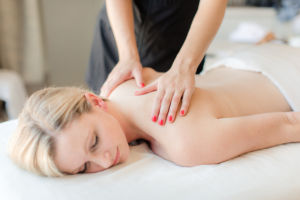Dealing With Fall Blues
The more we delve into autumn, the further we get away from longer days, pool parties, and summer vacation. Due to a number of causes, many people report increased levels of anxiety and depression as the weather gets colder. While there are not a lot of officially recognized studies to diagnose this condition, many point to changing seasonal circumstances as sources of stress. Many children and adults go back to school in the fall, which can bring on the pressure to perform and achieve good grades. As the days grow shorter, less sunlight means reduced levels of serotonin and vitamin D, which can significantly affect mood, appetite, and sleep patterns. And for some people, winter is just a harsh time of year. The cold can grow uncomfortable, roads may be dangerous to navigate, and some are more prone to becoming ill during this time. If you are one of the millions of people who come down with a case of the blues as we enter fall, consider some of these suggestions to help turn things around.
Exercise
Getting regular exercise is one of the most important ways to enjoy good health, both physical and mental. Many feel it is easier to exercise during hotter summer weather. But with a little preparation, autumn is an excellent opportunity to take long walks or leisurely bike rides in cooler air that doesn’t cause quite so much sweat. If you still crave the intensity of harder workouts, consider joining a gym, as many offer promotional pricing during this time of year. You can also look into yoga or dance, as these activities tend to have indoor studios housing numerous participants, which can further help combat the cold. Exercise keeps you limber throughout the holiday season while producing endorphins that can effectively combat seasonal malaise. Its importance cannot be overstated.
Avoid Reclusive Behavior
Spending too much time shut in and alone during autumn can cause unease and depression. It’s a natural tendency for everyone to travel less and spend more time at home. Now, there’s nothing wrong with getting cozy and spending some time by yourself while it’s cold out. It’s only when you start to become isolated where problems may emerge. Humans are inherently collaborative, and for many people, loneliness can be just as harmful as a smoking habit. If you are naturally introverted, this does not mean you have to become an ardent socialite suddenly. It is just advisable to plan for some regular human interaction throughout the winter months. If you do not have a readily available circle of friends or family, it can be something as simple as a brief exchange with your barista while going out for coffee. Avoiding long bouts of isolation for up to half a year can go a long way in maintaining a healthy mood.
Get Enough Light
Due to the way the Earth spins, you have less sunlight to work with during the fall and winter. The risks of excessive sun-based UV radiation and its ties to certain skin cancers are by now well documented. But not getting enough sunlight comes with its own set of risks and problems. The body requires a certain amount of the sun to produce enough vitamin D to function optimally. Becoming vitamin D deficient can weaken the bones and compromise the immune system. Even being in the dark for a prolonged period has been shown to increase anxiety and depression, symptoms tied to what some call seasonal affective disorder. If you can, try and spend as much time out in the daylight as your schedule will allow. If you are finding yourself still coming up short on vitamin D, you can take supplements to help make up the difference. If the region you live in produces excessively dark periods, consider looking into light therapy boxes that can expose you to more luminosity than is naturally available, which may go a long way in helping your mood. Some of these boxes are designed to gradually increase in intensity on a timer, which can simulate a sunrise even if no such thing is occurring outside.
See a Professional
If you feel like you’re becoming overwhelmed at this time of the year, there are a number of experts and services you can seek in order to take the edge off of the situation. If feelings of anxiety and depression are becoming a lot to deal with, you might consult your doctor to discuss life changes you can try or possible courses of treatment. If necessary, some medication or antidepressants might be advised if you need additional assistance.
Coming in from the cold to have a massage in a spa might be just the thing you need to relax. Despite it being generally referred to as the “holiday” season, many find the festivities a source of stress. The idyllic celebrations we see on screen and in marketing material just might not be the reality of the situation. If you are building up a lot of tension trying to navigate the rigors of the holidays, a massage can help even things up.
One other service you might look into is consulting a chiropractor. Somewhat similar to the massage idea, a chiropractic therapist is distinguished by specialized knowledge regarding alleviation of pain and problems related to the neck and spine. More than just the vertebrae, the spine is deeply connected to the operation of the entire nervous system. Through advising life adjustments or, if necessary, applying corrections to misalignments in the spine, a chiropractor can help make sure your posture and circulation are optimized, which can help mitigate any oncoming stress and fatigue.
If you find yourself feeling down at this time of year, those feelings have merit and should not be ignored. These are just some ideas and resources to consider in order to make your fall and winter maybe just a little brighter. There’s a lot to life all year round. Here’s hoping you’re able to make the best of it, no matter what the season.






